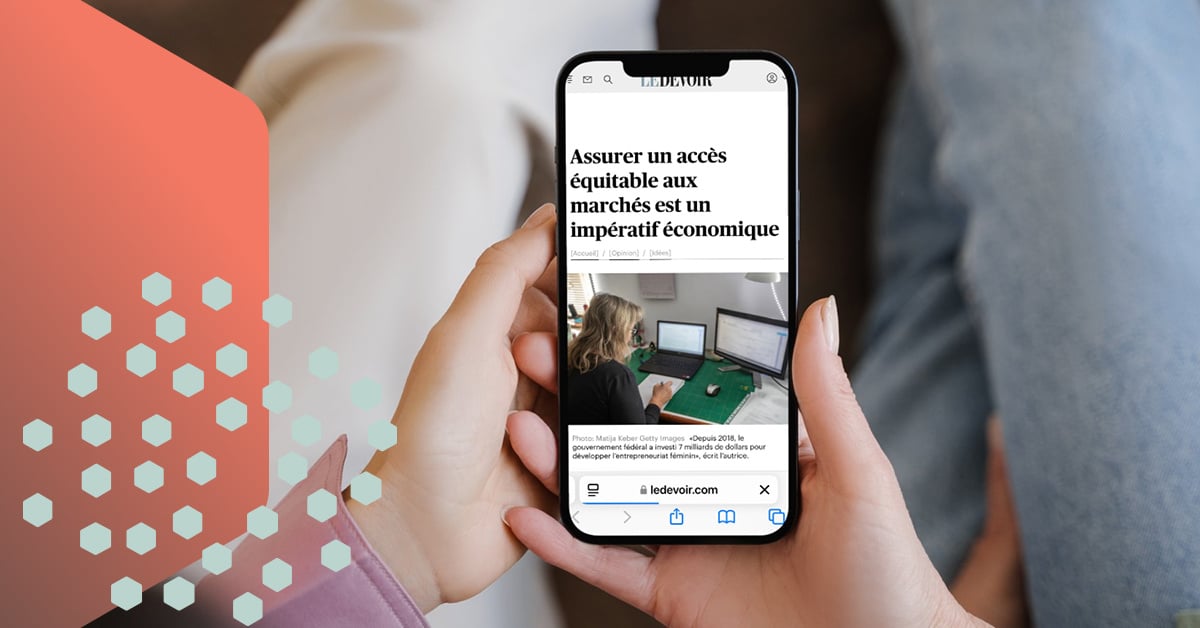
As an entrepreneur, your daily life is fast paced and often requires taking action on several fronts, including product or service development, communications, accounting, and administration. But, if there’s one task you can’t skip over, it’s searching for buyers. Whether your target market is B2B or B2C, what you’re offering has to sell.
Your first reflex might be to aim for the end consumer. But what if the best strategy was to expand your scope, and to consider large enterprises that might benefit from your offering or whose clients might benefit from it? In dealing with large enterprises, there is a whole host of business terms that you should be familiar with. In this article, we’ll break down a number of them.
Request for information (RFI)
This is usually the first step and the broadest when a company is looking for a supplier. Large enterprises draft the RFI and send it to potential suppliers to determine a sense of their overall offerings, as well as their capability and suitability. It is important for the business to clearly state what their requirements are, as this allows for distinguishing between elements offered by all suppliers and those that are unique to the company. The RFI should also include details about the expectations and deadline for responses. While it is structured in such a way as to gain specific information, this is not a formal invitation to bid.
As RFIs within a particular sector can be similar across companies, as a potential supplier, you may wish to compile a set of pre-planned responses or rely on a response management platform to assist you. However, you still need to tailor these replies to ensure they cover all of the aspects set out by the company. This also means reaching out to team members with expertise in the particular areas.
Request for proposal (RFP)
Once a company has narrowed down their choices for potential suppliers with an RFI, they will move on to the next stage. An RFP is more detailed and includes the company goals for a specific product or service and the terms of a contract. It requires suppliers to outline how they will meet the needs of the company and provide an overview of their processes to ensure they are aligned with those of the requesting business. The other evaluation criteria used to select a supplier are also included in this document. While RFIs are typically sent directly to potential suppliers, the company usually posts an RFP publicly.
If you choose to submit a proposal, it is important to figure out precisely what the deliverables are and if you are able to meet them. You should also seek input from team members on if the client business is a good match, in terms of values and target market. These details on your end should also be included in your response to the RFP. Another important element to include is an executive summary.
Request for quote (RFQ)
In some cases, the main factor for selecting a supplier may come down to price. Sometimes, the replies gathered during an RFI are sufficient for a company to proceed directly to an RFQ, while other times, an RFP is still required to decide on which suppliers are in the running. In either case, it is recommended that businesses follow a standard format for the document that includes requirements such as the features sought after, delivery timelines and payment terms. This way, all responses will have the same information and allow for an equal comparison of potential suppliers.
When submitting a quote, you should ensure that you take into consideration your costs, as well as any currency differences. It is also highly beneficial to be aware of your competition and how you are differentiated from them. You may also wish to leave some bargaining room for negotiations.
Tender
A more rigid process than an RFP, a tender is an offer by a supplier that results in a bid contract, which obliges the company and supplier to do business together. In general, this contract does not allow for negotiating and the company has a duty of fairness to treat all compliant bidders equally without hidden preferences.
As part of a tender, a supplier may be required to provide additional documents, such as financial statements, company profiles and certifications. Like an RFP, you should also include an executive summary, as well as references and thorough responses to the questions in the request for tender (RFT).
Directed contract
This procurement method is used to facilitate a contract between a business and a sole supplier in a streamlined fashion, which may involve financial efficiencies and be the best option for a very specific product or service. This avoids the more complex bidding documents associated with other processes, but may still allow for some negotiating. Buyers may also resort to this option in the event of an emergency, where they do not have the time involved with other approaches.
If you have previously supplied products or services to a buyer, it is possible that additional deliveries or provision of services be acquired through direct contract, in order to avoid disruptions and ensure consistency.
Maïa Inclusive Growth's role
As a project of the Quebec Business Women’s Network (QBWN/RFAQ), one of our main goals is building awareness, educating and inspiring women entrepreneurs. In addition, we supply training and workshops on an array of topics. So, if the subject of procurement seems overly complex or you don’t know where to start, we are here to provide with the information you need and to offer guidance. We also hold networking events spanning across the country along with our partners.
Regardless of where you are in your journey with supplier diversity, we encourage you to sign up for our training programs, which are offered online here :
Now that you better understand these terms, you can put this knowledge to use by joining our platform, which is a hub for business opportunities across Canada, including RFPs, tenders and direct contracts.
We also invite you to sign up to stay tuned for future blog posts. In addition, you will be notified of any updates and upcoming workshops.
Back to blog


